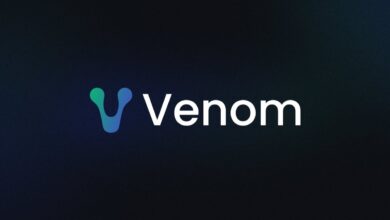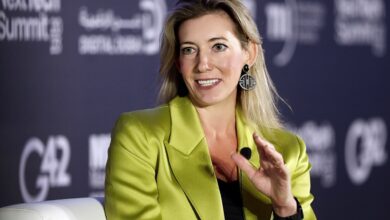Ripple’s Dance Between Traditional and New Finance: Interview with Reece Merrick
In the ever-evolving financial landscape, Ripple has emerged as a notable player, showcasing its innovative ability while navigating the intricate dynamics where traditional financial systems intersect with emerging digital assets. Recent milestones, such as its legal triumph against the SEC and its expansion into the stablecoin and custody business, underscore Ripple’s resilience and adaptability in an industry characterized by rapid change.
During our conversation with Reece Merrick, Ripple’s Managing Director for the Middle East and Africa, he emphasized Ripple’s unique position at the convergence of two distinct worlds: the traditional financial establishment and the realm of digital assets. Merrick’s insights shed light on Ripple’s trajectory and the evolving landscape it navigates.
Reflecting on Ripple’s origins, Merrick noted, “Our aim has always been to bridge traditional finance and decentralized finance.” Ripple’s early focus on addressing cross-border payment inefficiencies using blockchain and crypto, notably XRP and the XRP Ledger, laid the foundation for its current endeavors.
“As Ripple’s presence in the Middle East and Africa grows,” Merrick emphasized, “our mandate remains clear: to serve customers in cross-border payments while expanding into additional crypto-native services.” This includes ventures into custody solutions and forthcoming stablecoin offerings, reflecting Ripple’s commitment to innovation and meeting market demand.
The UAE’s proactive regulatory environment, particularly in the Dubai International Financial Centre (DIFC), has provided fertile ground for Ripple’s expansion. Merrick highlighted the significance of regulatory compliance and Ripple’s dedication to navigating regulatory frameworks while expanding its services in the region. It’s worth noting that in November 2023, Ripple announced the approval of the digital asset XRP for use within the DIFC by the Dubai Financial Services Authority (DFSA).
When asked about the possibility of obtaining a Virtual Asset Service Provider license from regulatory bodies like VARA or ADGM , Merrick expressed Ripple’s commitment to compliance and cooperation with regulators. He stated, “VARA, obviously a standalone regulator in the region, is doing fantastic things as well. Ripple itself has been in the DIFC since 2020. We’re very happy here. We are quite keen from a license perspective to work with regulators to deem and acquire licenses where we require.” This proactive approach underscores Ripple’s commitment to operating within the bounds of regulatory frameworks while continuing its growth trajectory in the UAE and beyond.
Discussing competition in the digital financial space, Merrick observed, “Ripple aims to address the inefficiencies of traditional methods like Swift, offering low fees and real-time settlement.” He emphasized the role of stablecoins and other players challenging the status quo, signaling a shift towards more efficient cross-border payment solutions.
In regions like Africa and Southeast Asia, where remittance businesses play a vital role, Ripple prioritizes engagement while acknowledging challenges related to regulatory readiness and market demand. “It’s a priority for Ripple to engage with these regions,” Merrick affirmed, “but progress hinges on various factors, including regulatory frameworks and market dynamics.”
On April 3rd, 2024, Ripple made a significant move by entering the lucrative stablecoin market, valued at $150 billion, introducing its own digital currency pegged to the U.S. dollar. This stablecoin will maintain a 1-to-1 backing with assets such as U.S. dollar deposits, U.S. government bonds, and cash equivalents held in reserve by Ripple.
Merrick believes Ripple’s expansion into stablecoin settlement and custody solutions aligns with its objective of institutional adoption and tokenizing real-world assets. He underscored the importance of infrastructure advancements and the immense potential for tokenization both in the UAE and globally.
Despite legal battles with the SEC, Ripple remains steadfast in its pursuit of a fair resolution. “Our recent victories affirm that XRP is not a security,” Merrick stated, expressing confidence in the legal process and Ripple’s ability to navigate regulatory challenges. Ripple’s journey mirrors the evolving landscape of finance and digital assets, characterized by innovation, partnerships, and regulatory hurdles.




